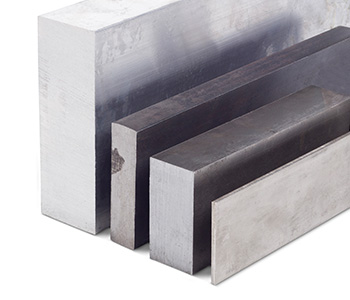
Have you ever struggled to calculate the weight of a rectangular steel bar? Our guide explains how to easily determine the weight using our specialized calculator, ensuring precision in your metalworking projects. Discover step-by-step instructions and a comprehensive weight chart for various dimensions. By the end, you’ll be equipped to handle your material estimates with confidence, saving both time and effort.

Rectangular bar, also known as rectangular steel, is a versatile structural steel product with a solid cross-section in the shape of a rectangle. This widely used metal profile is characterized by its uniform thickness and width throughout its length, with the width being greater than the thickness. Rectangular bars are produced through hot rolling or cold drawing processes, depending on the desired dimensions and material properties.
Key features of rectangular bars include:
Rectangular bars find extensive use in construction, manufacturing, and engineering applications, serving as structural supports, machine components, and raw material for further processing in industries such as automotive, aerospace, and heavy equipment manufacturing.

The Rectangular Bar Weight Calculator is a valuable tool for metal fabricators, engineers, and designers working with rectangular metal bars. This calculator allows users to quickly and accurately determine the weight of a rectangular bar based on its dimensions and material.
Related Tool: Steel Weight Calculator
This chart provides a quick reference for the weight of rectangular steel bars of various dimensions.
| Spec. | Weight (kg/m) |
| 20*20*1.2 | 0.75 |
| 25*25*1.2 | 0.94 |
| 40*40*2 | 2.29 |
| 40*40*2.5 | 3.02 |
| 40*40*4 | 4.68 |
| 50*30*2.5 | 3.02 |
| 50*30*3 | 3.6 |
| 50*32*2 | 2.2 |
| 50*35*2.5 | 3.32 |
| 50*50*2.5 | 3.81 |
| 50*50*3 | 4.44 |
| 50*50*4 | 5.74 |
| 55*38*2 | 2.8 |
| 60*40*2.5 | 3.81 |
| 60*40*3 | 4.44 |
| 60*40*4 | 5.74 |
| 60*60*2.5 | 4.52 |
| 60*60*3 | 5.38 |
| 60*60*4 | 7.02 |
| 70*50*4 | 7.02 |
| 70*70*4 | 8.22 |
| 70*70*5 | 10.2 |
| 80*60*3 | 7.09 |
| 80*60*4 | 8.22 |
| 80*60*5 | 10.25 |
| 80*80*4 | 9.96 |
| 80*80*6 | 13.85 |
| 90*40*2.5 | 5.19 |
| 90*60*5 | 10.47 |
| 100*60*3 | 7.3 |
| 100*60*4 | 9.16 |
| 100*60*5 | 11.53 |
| 100*60*4.5 | 14.41 |
| 100*100*4 | 11.65 |
| 100*100*8 | 23 |
| 120*120*4 | 14.16 |
| 160*80*4.5 | 15.84 |
| 160*160*4.5 | 19.2 |
| 220*80*6 | 27.1 |
This chart covers common sizes, but rectangular bars are available in a wide range of dimensions. For sizes not listed, use the formula provided to calculate the weight.
When working with rectangular bars, consider the following:
By utilizing this chart and understanding the factors that influence bar weight, fabricators and engineers can make informed decisions in their metal working projects, ensuring accuracy in material selection, cost estimation, and structural design.


